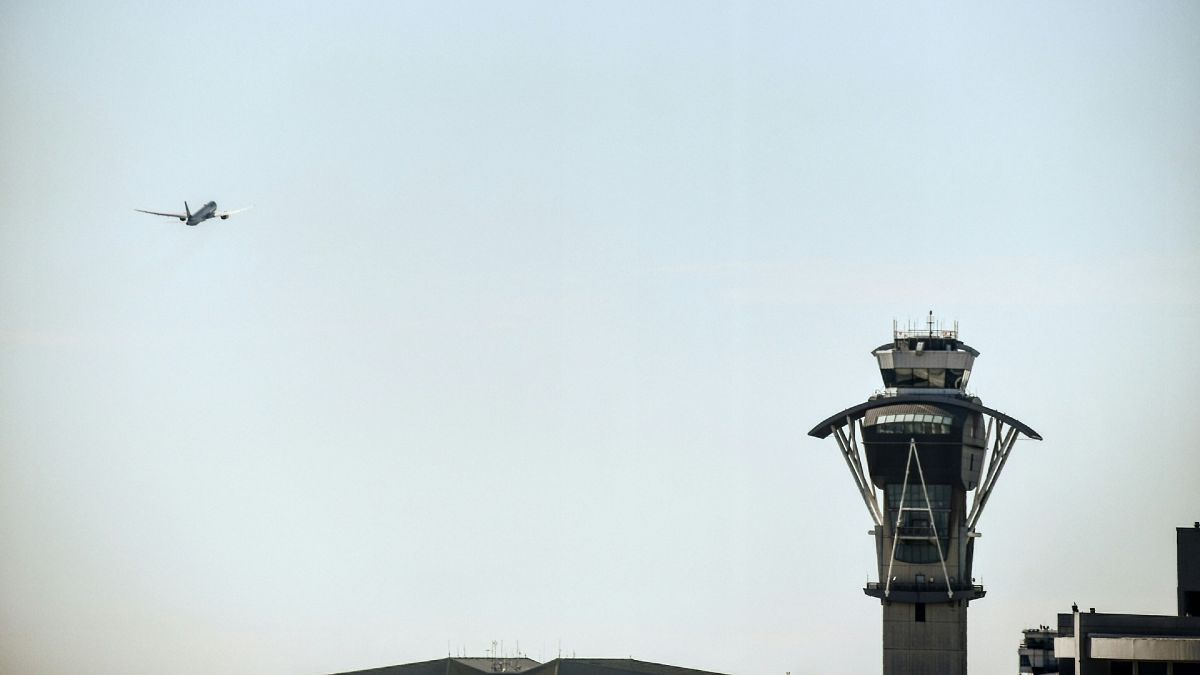Airlines and passengers in Europe are facing the worst season for air-traffic disruption in 25 years. And summer is still young.
Tens of millions of travellers are expected to face delays this summer, as mass cancellations caused by air-traffic control (ATC) strikes and persistent staff shortages plague the industry at the worst possible time.
In early July, ATC strikes in France led to the cancellation of 1,500 flights over two days, disrupting travel for more than 1 million passengers – and triggering intense blowback from both travellers and airline executives.
With more walkouts looming on 26 July in Spain and Italy, pressure is mounting on the European Commission to intervene. But the prospects of a seamless summer are dim.
Europe’s airspace crunch: What’s going wrong?
Europe’s aviation sector faces a perfect storm of problems.
Flights in Europe are now at 98 per cent of 2019 levels, according to data from Eurocontrol, Europe’s civil-military aviation coordinator. That should signal smoother travel, but the opposite has occurred.
One reason is that several flight routes have narrowed or closed entirely.
The war in Ukraine has forced its airspace closed for three-plus years, while EU airlines are banned from flying over Russia and Belarus. This has forced hundreds of daily flights into tighter corridors, creating congestion even before weather or strikes come into play.
But the bigger issue is staffing. Across Europe, ATC centres are struggling to fill roles after pandemic-era budget cuts and delayed training. Since it takes 18 months or more to train a controller – and trainees are limited to specific areas in Europe’s fragmented airspace, which is managed by 40 different service providers – there are no quick fixes.
In some countries, including France and Germany, as many as one in four posts is still vacant. Ben Smith, CEO of Air France-KLM, recently told UK news site The Independent that ATC staffing in France is down by as much as 25 per cent.
Meanwhile, controllers are citing burnout as they go on strike to demand better work conditions.
Frustration mounts among travellers and airlines
The strikes in France earlier this month may have been the tipping point for some airlines.
Unlike other nations, such as Italy and Greece, France does not allow overflights – flights that merely pass through its airspace – during strikes. That leaves low-cost carriers especially exposed when disruptions occur.
Airlines such as Ryanair, which has pointedly called out the “hopeless mismanagement” of ATCs in France, Spain and Germany, say the crisis is only getting worse.
Ryanair says delays will be even worse than last year, blaming “poor planning” and staff shortages. After 5,000 hours of delays were recorded on just one day in June, the airline unloaded on the European Commission for what it called failure to protect overflights.
A spokesperson for the budget airline called the disruptions “unacceptable,” while mocking Commission President Ursula von der Leyen for inaction.
“EU Commission President von ‘Derlayed-Again’ in [six] years has still taken zero action to protect overflights and defend Europe’s single market for air travel,” Ryanair CEO Michael O’Leary said in a press release on 11 July.
“What’s stopping French Air Traffic Controllers from closing the EU skies again next week or the week after with more of these unjustified recreational strikes?”
Calls for reform, but relief is far off
Online, frustration is boiling over, too. Sites likeATC Ruined Our Holiday vocally urge collective action. The website lists the number of flights disrupted and passengers affected by country – and shares their transport ministers’ contact information.
Ryanair also launched the “ATC League of Delays” to keep track of performance by country. France currently tops the list, followed by Spain and Germany.
But relief may not come any time soon – especially for passengers.
Last month, the EU Council agreed to raise the amount of time passengers are delayed before they can qualify for compensation. Previously, passengers could request compensation for delays of three hours. Now, short-haul flights would have to be delayed by four hours and long-haul flights for six hours or more.
The decision even left airlines upset, albeit for different reasons. Airlines for Europe, the trade body that represents Ryanair and easyJet, among others, lashed out at the plan – because it wanted longer delays before passengers could request compensation.
Meanwhile, one broader structural fix has been stuck in political limbo for decades. The long-discussedSingle European Sky initiative, which would streamline national airspaces under one unified system, is still years away from being realised.
The European Parliament says the project could triple airspace capacity and cut delays in half. But political hurdles, national interests and union resistance have stalled progress since it was first proposed in 1999.
With no quick fixes on the horizon, summer travellers should brace for another season of disruption.
